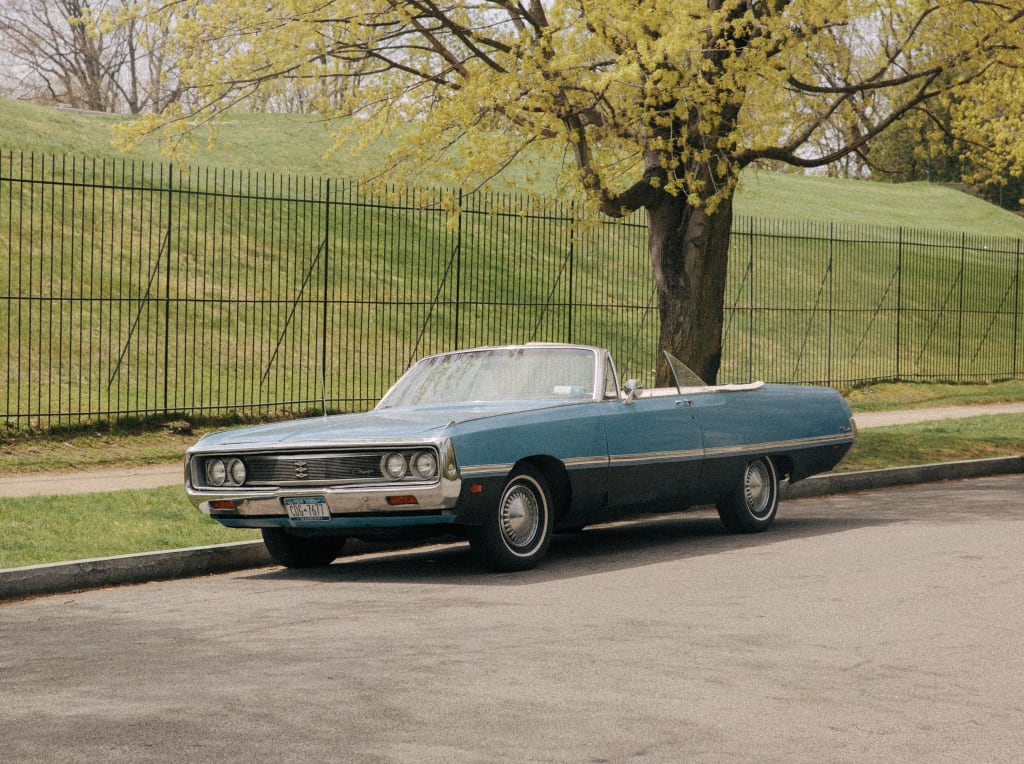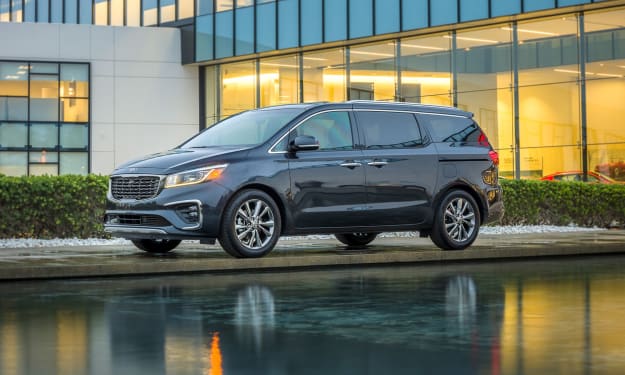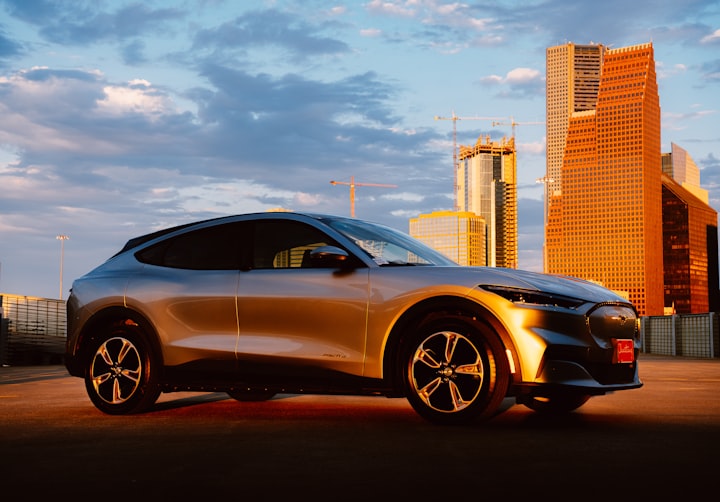Why Are Convertibles So Rare?
Convertibles are fun, sporty, and look amazing. So, why are convertibles so rare?

I drive a convertible, and I honestly think it's one of the best purchases I've ever made in my life. Words cannot describe how much I enjoy that car and how much I'm a "convertible for life" type of person.
There's nothing like feeling the wind graze your hair on a beautiful summer night as you cruise down the highway. When you're in a convertible, people notice you. You feel like a rockstar. It's more fun than you'd ever imagine.
My friends love it when I drive them around because my car is so friggin' awesome, and they love being able to blast music with the top down. People regularly tell me my car is amazing and that they wish they had a convertible.
Being able to drop top and embrace the open air at night literally makes my life feel amazing. I can't get over how much my car is awesome! I believe every car owner should ride in a convertible at least once.
So, why are convertibles so rare? I decided to take a look at why it's so hard to find a fellow convertible lover on the road.
How rare are convertibles?
Convertibles are currently one of the rarest body types of cars on the road. As of right now, on dealership lots, there are only 27 new models of convertibles being sold for under $85,000. Statistics show that only a couple thousand convertibles are bought every year across the country.
Under 15 percent of all cars are convertibles, meaning that you will have a hard time spotting one on the road. In my home state of New Jersey, which has a very above average rate of convertible buyers, it's still rare to see them on the street.
Considering how fun they are, you have to wonder what makes convertibles so rare, right? Well, there's a couple of answers that people have given.
Cars have become pricier for most American families simply because wages have stagnated while costs of living have inflated considerably. And, most people out there are now more interested in getting from Point A to Point B reliably than traveling in style.
Convertibles aren't "utilitarian" cars; they're considered to be luxury cars. With that luxury tagline comes a higher price tag, and it's not one that's undeserved. Thanks to their removable rooftops, convertibles have a lot of extra parts that regular sedans or SUVs don't have.
Since people are looking for a bargain, convertibles are often an option that just doesn't seem to be doable. This is compounded by the fact that most car manufacturers don't make cheap convertibles, and those that do often get reputations for poor design.
For many people, the stigma of a convertible can be an issue as well.
Though convertibles were once the go-to vehicle for young people who wanted to be fun and carefree, this is no longer the case. Around 75 percent of all convertible buyers are over the age of 45 these days, which has slowly eroded the reputation of convertibles being for younger people.
Personally, I've had people assume I'm way older when they hear what car I drive. As a convertible owner, I can tell you that what your car says about you usually ends up being something along the lines of "MIDLIFE CRISIS ALERT."
This doesn't bother me, but it definitely bothers other people. Whether this is one of the reasons that makes convertibles so rare remains to be seen, though.
Americans are generally interested in having large cars that allow them to fit their entire families inside them. This is why SUVs and CUVs are so popular—and why station wagons were before them.
Most convertibles also only have two seats in them, which means that they are, by design, not family cars. With over half of all car buyers having kids of their own, convertibles basically alienate a large majority of buyers by sticking to two-seater designs.
Safety-wise, people also tend to have their doubts.
We live in a time where everyone thinks that a large, towering vehicle is a safe one. And, up to a point, this is true. Being high up gives you better visibility and also means that you will have less chance of certain kinds of road mortalities.
Between that and the inherent risks that come with having a car that doesn't have a roof, it's easy to see where street safety concerns may dissuade some cautious drivers. Obviously, this can be true regardless of whether you have a soft top or retractable hard top.
People love safe cars that make them feel substantial on the road. Convertibles are tiny cars. That's one of the more commonly cited reasons that makes convertibles so rare.
Having experienced the price tag shock on a roof replacement and a wiring issue on my last drop top, I can tell you with a fair amount of certainty that this is one of the biggest reasons that make convertibles so rare.
When you have a convertible, repairs quickly add up. The parts are more expensive, the labor has to be more intense, and, in many cases, getting your car fixed can require a specialist. It's a lot of ugliness to deal with and can easily burn out buyers.
If you like to repair your own cars, it might not be as much of an issue. For most drivers, though, it's just a nightmare.
A lot of people aren't fans of their compact size, either.
Americans are big people. The average American woman is a size 16, while the average American man is overweight. America has an obesity crisis that doesn't seem to be going away any time soon. So, you're probably wondering what this has to do with convertibles, right?
Well, convertibles are small cars—really small cars. As in, certain convertibles are actually too tiny to have tall or unusually heavy people ride in them. Even if you are an average size, it's easy to find a Miata MX-5 to be a bit too tiny to feel comfortable inside.
As much as I love convertibles, I will admit that there are a lot of lemons in this body-type category. In fact, part of the reason Americans aren't buying convertibles is that certain convertible models can have catastrophic failures.
Many of the convertibles of yore went down as some of the least reliable cars to buy. These include...
- The Chrysler Sebring: This car, due to the sheer number of mechanical problems alone, is considered to be one of the worst cars ever made. Need we say any more?
- The PT Cruiser Convertible: Originally made to look like a car from the 1930s, the PT Cruiser ended up looking (and driving) like a trainwreck from 2005.
- The Smart Car for Two Convertible: Ugh. Just... ugh.
That being said, there's also an issue with convertible models becoming known for being poor quality. Even Jeep Wrangler models have had some serious issues with reliability that have started to tarnish their reputations.
If you look at the flops among convertibles, is it any wonder why are convertibles so rare?
Some might argue that convertibles are only fun during one time of the year.
Yes, summer is generally thought of as the only "convertible season" out there, but this isn't really true. Convertibles can be great year-round cars if you have a leak-proof top and aren't afraid of cleaning your car's interior after a good cruising.
Most of the people who say this kind of crap haven't actually driven in a convertible. So, keep that in mind.
It takes a certain type of person to call a convertible their ideal car—and most people are not that type of person. They are expensive, high maintenance cars that offer up a lot of fun in exchange for your care. They're a niche type of sports car you have to "get" in order to adore.
So, while my kind of car may be rare, it's rare for a reason. We convertible owners are the few, the proud, and the occasionally smug... and we love every second of it.
About the Creator
Iggy Paulsen
Iggy Paulsen is a fan of anything and everything wholesome. He loves his two dogs, hiking in the woods, traveling to Aruba, building DIY projects that better humanity, and listening to motivational speakers. He hopes to eventually become a motivational speaker himself.






Comments
There are no comments for this story
Be the first to respond and start the conversation.